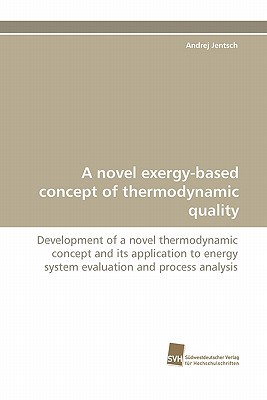
- We will send in 10–14 business days.
- Author: Andrej Jentsch
- Publisher: Sudwestdeutscher Verlag Fur Hochschulschriften AG
- Year: 2010
- Pages: 184
- ISBN-10: 3838118219
- ISBN-13: 9783838118215
- Format: 15.2 x 22.9 x 1.1 cm, softcover
- Language: English
- SAVE -10% with code: EXTRA
A Novel Exergy-Based Concept of Thermodynamic Quality (e-book) (used book) | bookbook.eu
Reviews
Description
In this work a novel concept is developed that allows to interpret exergy associated with mass or energy transfers as a product of thermodynamic quality (transformability) and quantity (transformation energy). Based on this splitting of exergy into two novel properties an evaluation method is suggested that allows a transparent exergy-based comparison of different energy supply technologies. Additionally, a consistent structured procedure for the evaluation of energy supply systems for domestic heating and cooling is laid out that includes a comprehensive rule-based boundary definition and an exergy-based attribution of fuel to heat from combined heat and power processes. The developed method is exemplary applied to supply systems for domestic heating and cooling as well as used for the analysis of some basic thermodynamic processes and a vapor-compression cascade refrigeration machine. The dissertation concludes with a discussion of the advantages and disadvantages of the novel analysis and evaluation method in comparison to an exclusively exergetic evaluation and analysis.
EXTRA 10 % discount with code: EXTRA
The promotion ends in 20d.21:43:13
The discount code is valid when purchasing from 10 €. Discounts do not stack.
- Author: Andrej Jentsch
- Publisher: Sudwestdeutscher Verlag Fur Hochschulschriften AG
- Year: 2010
- Pages: 184
- ISBN-10: 3838118219
- ISBN-13: 9783838118215
- Format: 15.2 x 22.9 x 1.1 cm, softcover
- Language: English English
In this work a novel concept is developed that allows to interpret exergy associated with mass or energy transfers as a product of thermodynamic quality (transformability) and quantity (transformation energy). Based on this splitting of exergy into two novel properties an evaluation method is suggested that allows a transparent exergy-based comparison of different energy supply technologies. Additionally, a consistent structured procedure for the evaluation of energy supply systems for domestic heating and cooling is laid out that includes a comprehensive rule-based boundary definition and an exergy-based attribution of fuel to heat from combined heat and power processes. The developed method is exemplary applied to supply systems for domestic heating and cooling as well as used for the analysis of some basic thermodynamic processes and a vapor-compression cascade refrigeration machine. The dissertation concludes with a discussion of the advantages and disadvantages of the novel analysis and evaluation method in comparison to an exclusively exergetic evaluation and analysis.


Reviews